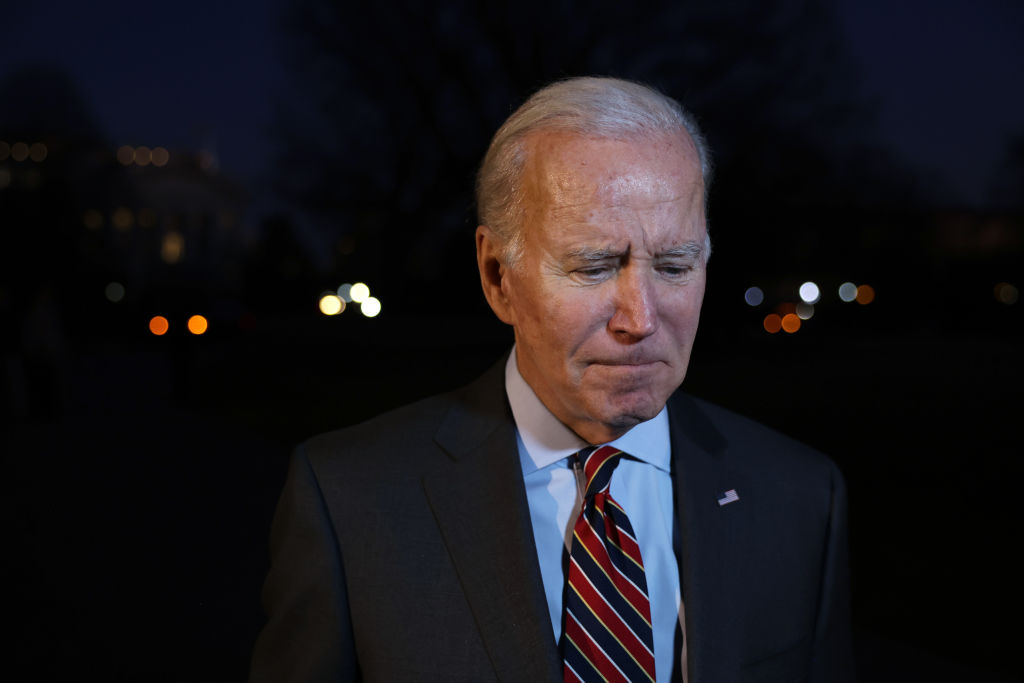In the past two weeks, Joe Biden has spared the lives of two turkeys and pardoned his son, Hunter. Earlier this week, Politico reported that he is also considering “pre-emptive pardons” for former Republican congresswoman Liz Cheney and his onetime chief medical advisor Anthony Fauci, whom Donald Trump has threatened to prosecute for unspecified crimes once he returns to the White House next month.
Yet there are other acts of mercy which the President could choose before he leaves office. As a Catholic, Biden is a practising member of a Church that is vehemently opposed to capital punishment. His last weeks in power coincide with the season of goodwill, but he has said nothing to suggest he plans to reprieve the 40 prisoners awaiting execution on federal death row in Terre Haute, Indiana. Running for the presidency in 2020, he pledged “to work to pass legislation to eliminate the death penalty at the federal level”, because “we cannot be sure” that the criminal justice system “gets death penalty cases right every time”. However, he has done nothing to make this a reality.
Then again, inconsistency has long been the hallmark of Biden’s attitude to capital punishment. In 1991, he attacked then-President George H.W. Bush in the Senate for being “soft on crime”, on the grounds that his Justice Department had “only four times a year put someone in prison for life and only once gotten the death penalty”. The following year, he sponsored a crime bill which greatly expanded the ability of federal — as opposed to state — courts to pass death sentences, boasting it would “do everything but hang people for jaywalking”.
Indeed, it was not until 2019 that he revealed possible abolitionist leanings, when he said in a speech in New Hampshire: “By the way, congratulations to y’all [for] ending the death penalty here.”
The contradictions continued after Biden became President. In 2021, his Attorney General Merrick Garland announced a formal federal execution moratorium, expressing concern to senators about the death penalty’s “increasing almost randomness or arbitrariness” and its “enormously disparate impact on black Americans and members of communities of colour”. But Garland went on to seek the death penalty earlier this year in a federal trial held in New York, a state that has abolished it, and has contested federal death row appeals. For example, in 2022 his department persuaded the Supreme Court to reinstate the death sentence for the Boston Marathon bomber Dzokhar Tsarnaev, after it was quashed by the First Circuit Court of Appeals.
However, Garland was not wrong when he spoke of its arbitrariness. While more than 200 people sentenced to death since 1973 have been exonerated, the point here is not the possible killing of the innocent but instead the failure of US courts to ensure death sentences are reserved for the “worst of the worst”. A recent report by the Death Penalty Information Center reveals that of the 40 current federal death row inmates, 43% were tried in just three of the 94 federal judicial districts. What’s more, since 1989 73% of the 541 people who have faced federal capital punishment charges were non-white, a percentage far in excess of their proportion in both the US population and among those charged with serious crimes.
Most, though not all, of the federal death row inmates have exhausted their possible appeals. The record of Trump’s first administration makes their jeopardy plain: in his final weeks in office, 13 federal inmates were put to death, bringing an end to an effective executions moratorium that had lasted since 2003. On the campaign trail this year, Trump said he wanted to expand the present scope of federal capital sentences to include crimes other than espionage, treason and murder, including drug dealing.
Liberal organisations such as the American Civil Liberties Union have been urging Biden to grant reprieves, as has the Left-wing New York Democrat representative Alexandra Ocasio-Cortez. There is no sign they have made headway.
Biden’s Catholicism may prove more decisive, though. Earlier this week, an editorial in the National Catholic Reporter said that by granting clemency — something he could do with the stroke of a pen — “Biden could embody the most profound teachings of his faith and leave a legacy of compassion that will resonate for years.”
Since Trump’s victory in November, I’ve spoken twice with Krisanne Vaillancourt Murphy, executive director of the Catholic Mobilising Network, America’s main Catholic abolitionist advocacy group. Initially, she sounded optimistic, saying she and her staff were closely engaged with the White House, where there were officials “who are open to our concerns”. She pointed out that the Pope has declared 2025 to be a jubilee year, traditionally a time for amnesties, which would give Biden an opportunity “to align himself with the jubilee as he stepped down after decades of public service”.
Last week, she seemed more downbeat. There was, she said, “an added level of interest” in the possible reprieves thanks to the pardon for Biden’s son. But as yet, “we have not received any updates from the White House regarding federal commutations.”
To liberals and Catholics alike, the President has a chance to redeem his record and leave a humane legacy, just as the former Illinois governor George Ryan did in 2003 when he commuted the sentences of all the state’s death row inmates on leaving office. Oregon’s Kate Brown did the same in 2022. It remains to be seen whether he will answer their prayers.











Join the discussion
Join like minded readers that support our journalism by becoming a paid subscriber
To join the discussion in the comments, become a paid subscriber.
Join like minded readers that support our journalism, read unlimited articles and enjoy other subscriber-only benefits.
Subscribe